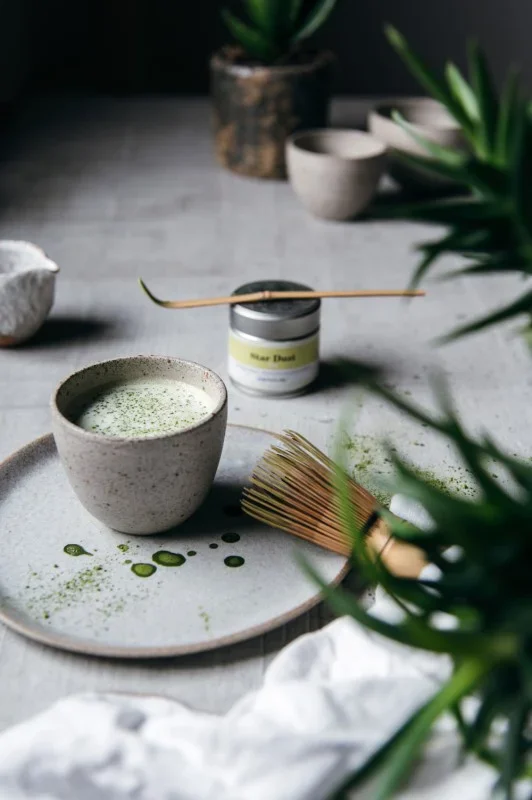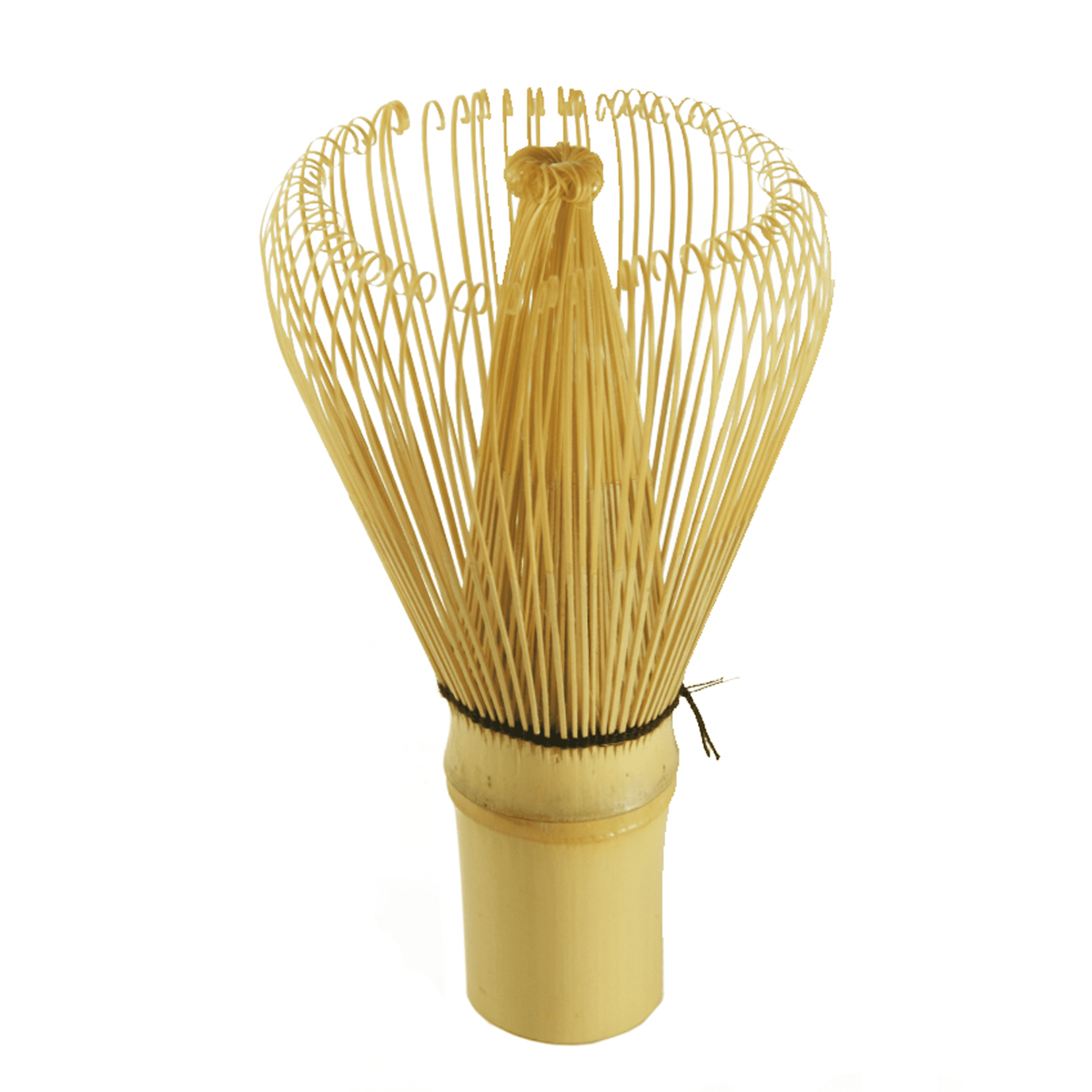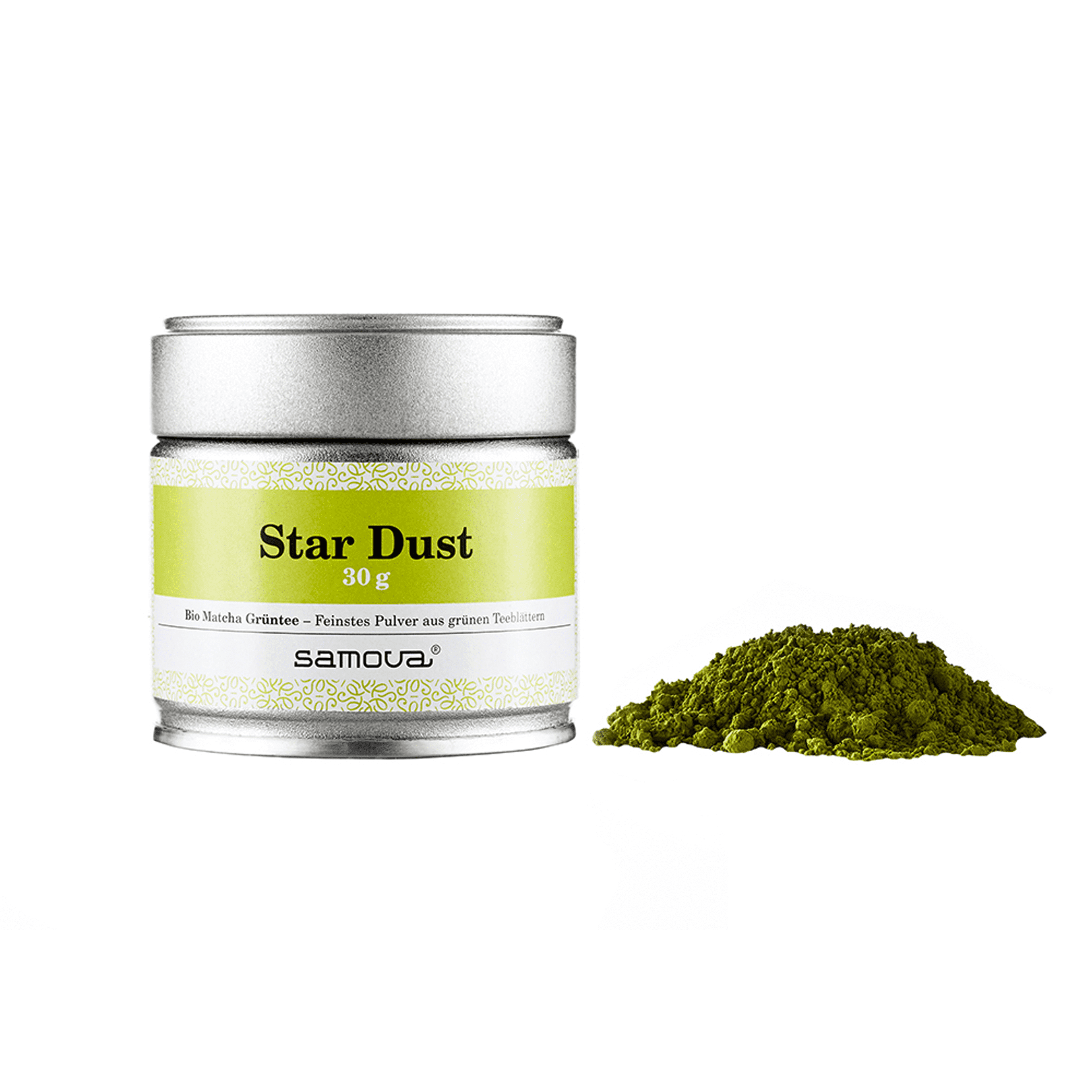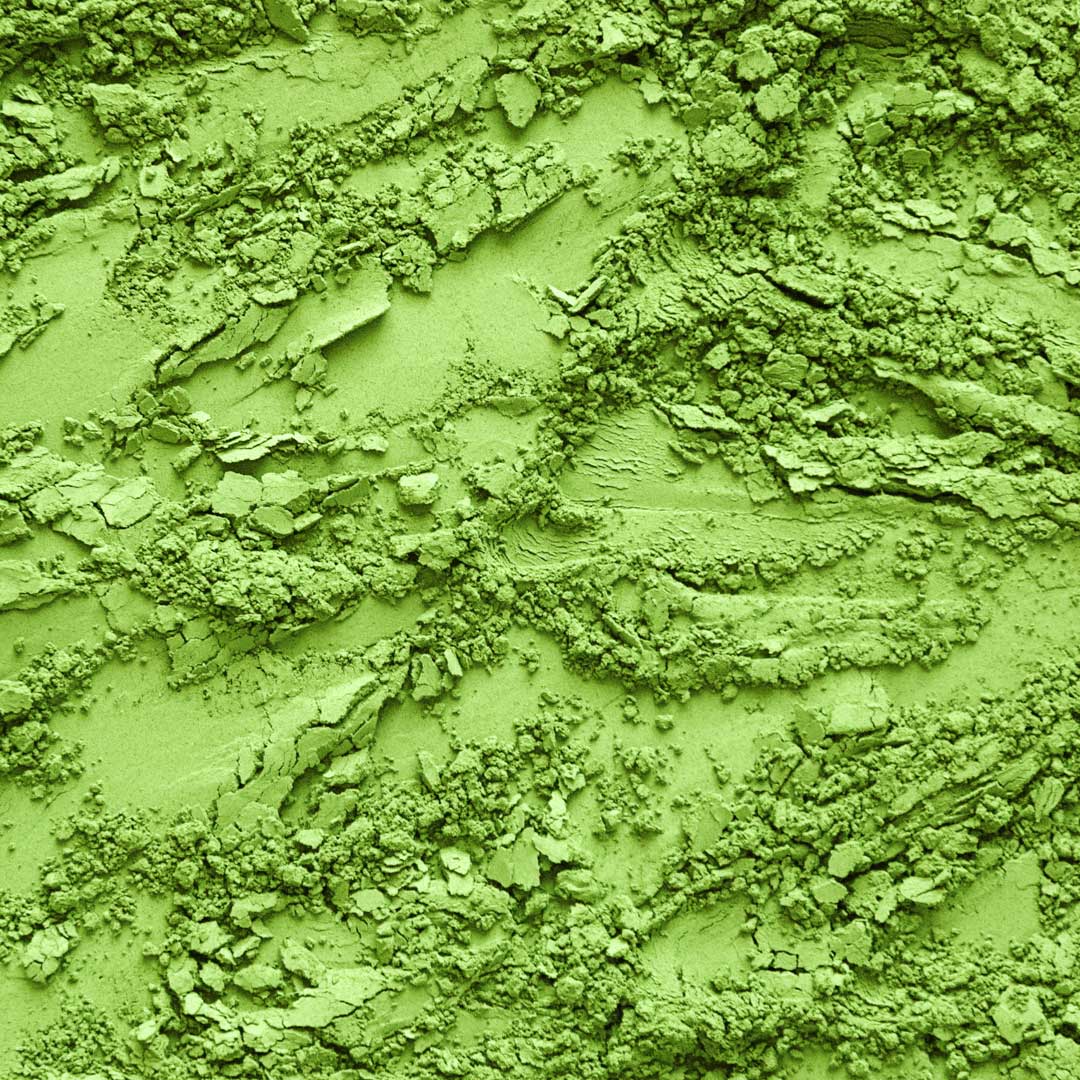
Matcha - it doesn't get any greener than this
A fine green tea in powder form: Matcha is traditionally used in the Japanese tea ceremony. The special processing and preparation as well as its gently stimulating effect make this very special tea a popular beverage.
All about Matcha
Content: 30 gr. (€1,165.00* / 1000 gr.)
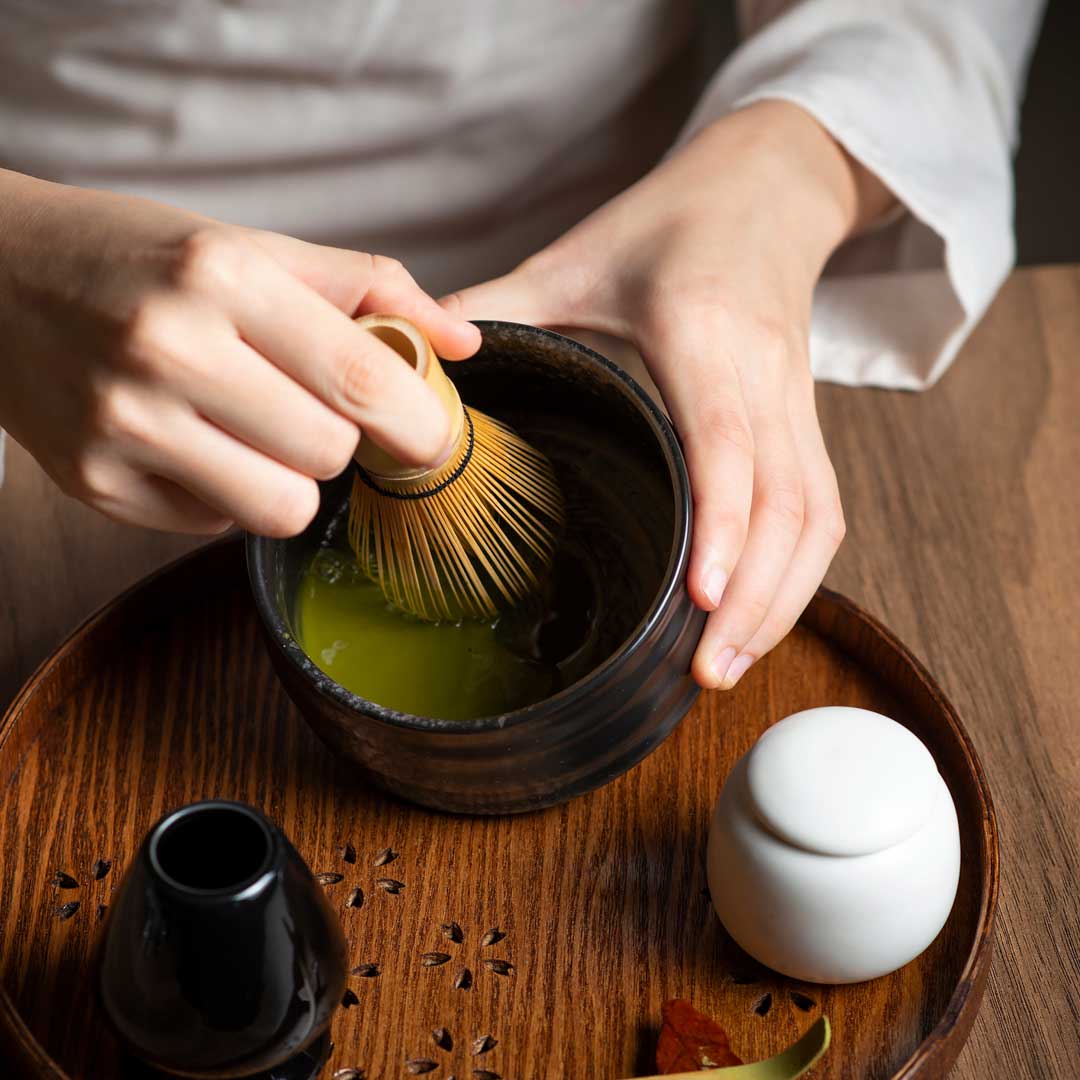
What is matcha?
Matcha is a green tea ground into powder. The word "matcha" comes from the Japanese and means "ground tea". Centuries ago, a Japanese monk centuries ago, a Japanese monk brought the knowledge of how to make matcha back to his home country. In Japan, the preparation was perfected and integrated into the Japanese tea ceremony. integrated into the Japanese tea ceremony. Matcha is still part of this traditional ceremony today.
More aroma: the leaves grow slowly in the shade
Matcha differs from all other teas and green teas due to its special processing and preparation. other teas or green teas. Only fully shaded tea bushes are used. tea bushes are used. Leaves that grow slowly in the shade produce more chlorophyll and therefore and therefore contain more aromatic substances. After picking, the leaves are steamed, dried and broken so that the leaf flesh separates from the stem and leaf veins. separated. Only the dried leaf flesh is then used. The coarser components are used to make other teas. The dried tea leaves are then are then ground into a fine powder using granite mills in a complex process. The aromatic, high-quality leaves and the elaborate production process make Matcha a particularly fine tea.
How is matcha prepared
Traditionally, matcha is the tea used in the Japanese tea ceremony. In
Japan, tea is not a beverage for in-between meals, but is associated with prescribed rituals such as the
cleansing of the hands and several gong strikes until it begins. The
preparation of matcha tea with specific utensils and predetermined hand movements still plays a
plays a major role to this day. In a nutshell: The powder is infused with hot water
and whisked until frothy with a special bamboo whisk.
To prepare matcha, you need a matcha tea bowl, bamboo spatula,
bamboo whisk and a tea thermometer.
The traditional preparation is described in more detail as follows:
- Pour the tea powder through a sieve to remove any lumps. get them out.
- Using the bamboo matcha measuring spoon, scoop two spatulas (approx. two grams) of the powder into the tea bowl. into the tea bowl.
- Pour 80 ml of hot water into the bowl, the temperature should be around 80 degrees.
- Push the moistened bamboo whisk, known as a chasen, quickly back and forth from the loose quickly back and forth from a loose wrist, tracing the letter M or W. trace the letter .
- Stir until the tea is evenly creamy.
- Finally, carefully move the bamboo whisk along the edge of the foam in the tea bowl so that it is higher in the middle. The higher and firmer the foam, the better the result, the better the result.
There are numerous videos on the internet to help you get a feel for the stirring technique.
There are two different types of preparation: Usucha ("weak tea") as the more more familiar variant, in which a relatively large amount of water is mixed with a small amount of matcha powder. And in contrast, koicha. Here, a small amount of water is added, resulting in a rather thick paste.
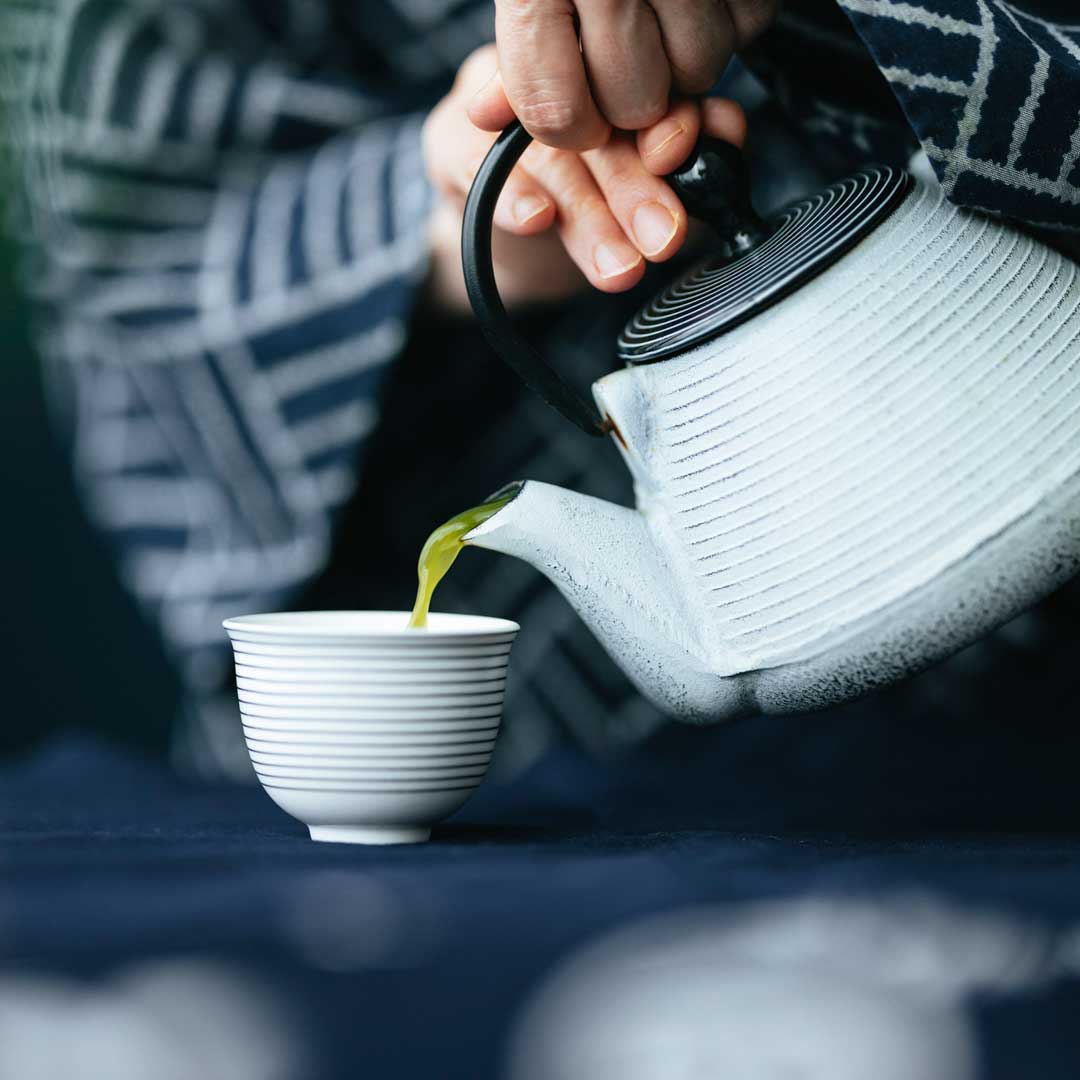
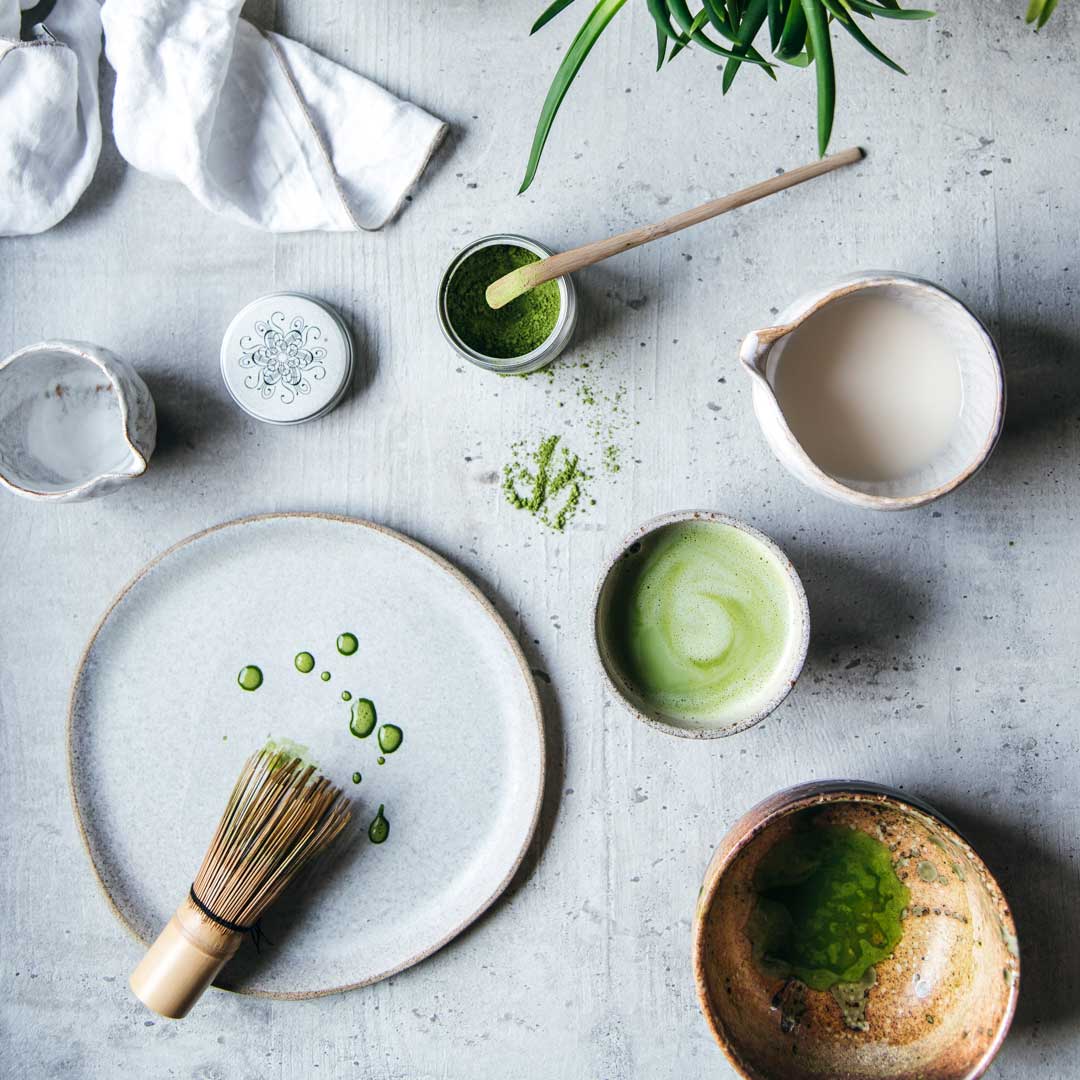
Distinctive taste, calming or gently invigorating effect
A common feature of all herbal infusions is that they do not contain caffeine - with the exception of mate tea, which we will therefore discuss separately here. Herbal teas usually have a calming effect on the digestion, heart and brain. However, due to their high content of essential oils, they often have a gently invigorating effect - such as mint teas, which calm the stomach but refresh the palate.
Thanks to their distinct taste, many tea herbs are also well suited for blending with and flavoring "real" teas - Chinese green "gunpowder" teas with Moroccan mint, for example, are a classic and a standard drink in many North African countries.
Many herbal plants are also grown in Germany, especially in Franconia and Thuringia. Others, such as Greek mountain teas or Moroccan mint, need more sun and warmth to develop their typical flavor-giving ingredients. The ingredients for some teas also come from wild collections, for example lime blossom and nettles.
The aroma is strongest during flowering
The best time to harvest or collect herbs to be dried is shortly before or during the flowering of the respective plant - this is when the aromatic substances reach their highest concentration. Leaves that are to be prepared fresh from the bush, for example from your own garden, can be picked earlier when they are still very young and soft. Both fresh and dried herbal teas are infused with boiling water and left to infuse for a few minutes. There are plenty of herbal teas in the samova range, including blends of green or black tea with herbs.
Star Dust and space adventures
Does Star Dust, the premium organic matcha from samova, come from another galaxy?
another galaxy? Of course not, it comes from Asia. But because the fine
green tea is ground into powder, samova founder Esin associated it with
associated it with stardust, in English translation Stardust.
The name "Star Dust" was found for samova's matcha. Especially as
the name inevitably reminded Esin of David Bowie's fictional character Ziggy
Stardust and his space adventures, as well as the ironic allusion to drugs.
allusion to drugs.
Star Dust, the matcha in powder form, also has a stimulating effect, but
without any addictive factor and in a gentle way. A name with a wink.
with a wink.
Bang: Star Dust is here, the matcha from samova!
In 2014, the time had come: samova responded to the community's request and, under the name Star Dust, launched an outstanding, slightly tart and gently tart and gently stimulating organic matcha in premium quality onto the market. A big bang, to speak a little in the space language of Ziggy Stardust's space language. And we haven't shot our powder yet! shot yet!The whole story of Star Dust, our fine green tea in powder form can be found here.
